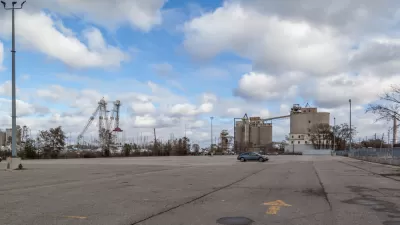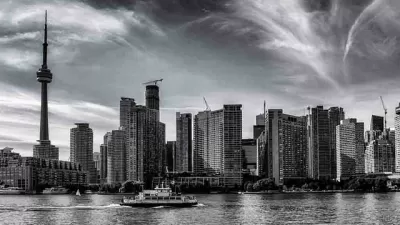Technology will be part of everyday life in a new Toronto neighborhood, planned by Sidewalk Labs. But looking to the future is also raising a host of privacy concerns.

Alphabet’s Sidewalk Labs is teaming up with Waterfront Toronto on Quayside, a 12-acre planned neighborhood on Toronto’s eastern waterfront. The technology-enhanced development has generated concerns about data collection, privacy, and security.
“Critics have sounded alarm bells that so-called urban data — information collected about people in areas such as lobbies, streets, plazas, parks and open spaces near Sidewalk Labs’ mostly residential development — should be in the hands of government, rather than a large, profit-driven U.S. company,” reports Donovan Vincent.
Other criticism has focused on the monetization of data as an outcome of this project. To address these concerns, Sidewalk Labs recently released a Digital Governance Proposals document. “In the draft report, Sidewalk says the monetization of data will not be part of its business model, adding it has committed not to sell personal information or use it for advertising,” says Vincent.
In addition, Sidewalk Labs says guidelines will be in place to protect individuals’ privacy and a data trust will manage collected data. “Sidewalk Labs said in order to protect privacy, any group or business entity proposing to collect or use urban data, including Sidewalk Labs itself, would first have to file a ‘responsible data impact assessment’ with the trust,” reports Vincent.
Still, say critics, the proposals are not adequate and Sidewalk Labs, as a vendor, should not be developing such guidelines. Sidewalk Labs will seek public input on the draft proposals as it moves forward with Waterfront Toronto to develop the Quayside master plan, due out early next year.
FULL STORY: Sidewalk Labs promises not to control data collected in Quayside’s public spaces

Alabama: Trump Terminates Settlements for Black Communities Harmed By Raw Sewage
Trump deemed the landmark civil rights agreement “illegal DEI and environmental justice policy.”

Planetizen Federal Action Tracker
A weekly monitor of how Trump’s orders and actions are impacting planners and planning in America.

The 120 Year Old Tiny Home Villages That Sheltered San Francisco’s Earthquake Refugees
More than a century ago, San Francisco mobilized to house thousands of residents displaced by the 1906 earthquake. Could their strategy offer a model for the present?

Opinion: California’s SB 79 Would Improve Housing Affordability and Transit Access
A proposed bill would legalize transit-oriented development statewide.

Record Temperatures Prompt Push for Environmental Justice Bills
Nevada legislators are proposing laws that would mandate heat mitigation measures to protect residents from the impacts of extreme heat.

Downtown Pittsburgh Set to Gain 1,300 New Housing Units
Pittsburgh’s office buildings, many of which date back to the early 20th century, are prime candidates for conversion to housing.
Urban Design for Planners 1: Software Tools
This six-course series explores essential urban design concepts using open source software and equips planners with the tools they need to participate fully in the urban design process.
Planning for Universal Design
Learn the tools for implementing Universal Design in planning regulations.
Clanton & Associates, Inc.
Jessamine County Fiscal Court
Institute for Housing and Urban Development Studies (IHS)
City of Grandview
Harvard GSD Executive Education
Toledo-Lucas County Plan Commissions
Salt Lake City
NYU Wagner Graduate School of Public Service




























